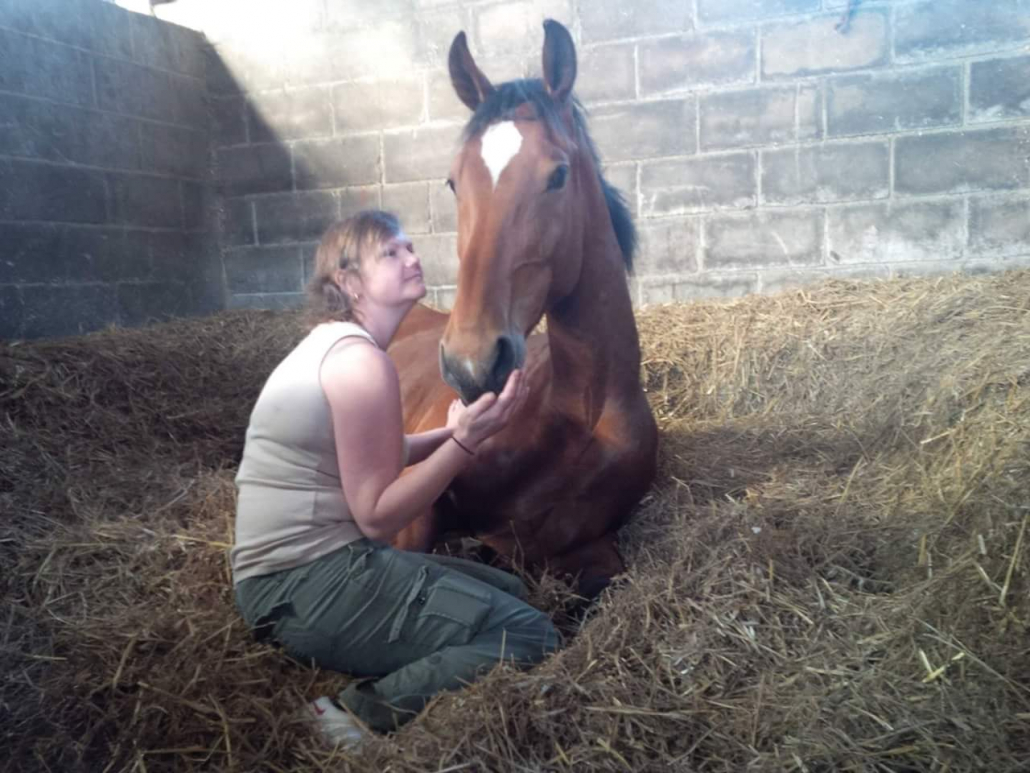Equine Assisted Therapy or EAT is beneficial for a number of mental health issues but particularly of benefit for trauma and relational work where perhaps the recounting of the original story would be too difficult, for conditions such as PTSD, and CPTSD. Attachment issues.
When human beings have let you down and hurt you, where do you go?
Horses offer a unique space for us to work with our emotions whilst being in relationship with a n other. This Therapy is very different and offers clients the experience of being both safe and at risk at the same time. Horse are always authentic which in a world where humans are not it is easier to build relationships and trust the process, whilst at the same time building human relationships with the therapist and equine professional.
Equine Facilitated Learning or EFL focuses on learning to offer our selves regulation, it can help with many different mental health issues but particularly anxiety, confidence, emotional regulation, self esteem and self awareness.
Working with horses, in a range of locations, clients will be able to explore how they feel and reflect on how they can support themselves with exercises given by the practitioner. We use mindfulness and self awareness tools to support clients improve there overall wellbeing and self regulation.
EFL incorporates a whole body approach, mind, emotions, and body, helping clients to achieve inner peace.
Equine Assisted Therapy session £120.00 and is 60 minutes long.
Sessions include the presence of the Counsellor and an Equine Specialist who is responsible for monitoring the horse’s well-being during the session. 2 people are required by insurance and for the safety of all persons.
Equine Facilitated Therapeutic Learning session £70.00 and is 60 minutes long
Sessions include working with a trained counsellor, all insurances.
If you would like any more information please get in touch, we are happy to help and answer any questions.
Why Horses? What’s the theory?
Horses have played a role in all our lives, through Disney characters like Maximus (Tangled) and Sitron (Frozen) to delivering the milk and working the land, although perhaps not so much in the present day.
Horses are super sensitive to their surroundings, they have the ability to show us how we are feeling by their body language, they also have the ability to affect our emotional state from theirs, as we can affect their emotional state.
Horses are strong and quite intimidating because of their size but they are also soft and incredible gentle, this mix allows clients to feel safe and often very childlike. This dynamic taps into the parent/child diad.
Working therapeutically with horses is based within the psychodynamic camp with Attachment theory, relational therapy as we can have a safe relationship when humans have perhaps let us down. Horses have the ability to offer healthy attachments and object relations theory for a ‘good enough’ experience, these are of paramount importance.
We also draw upon the latest Neuroscience and Polyvagal theory Gestalt as horses live very much in the here and now, and Ecopsychology, using nature and the natural world to influence mood, as being outside is a major benefit. Mindfulness also plays a significant part as clients become more aware of their own behaviours and body language when working with the horses.
Working with the horses enables clients to speak more freely than being a room, face to face with a counsellor, as this can be difficult for some.

